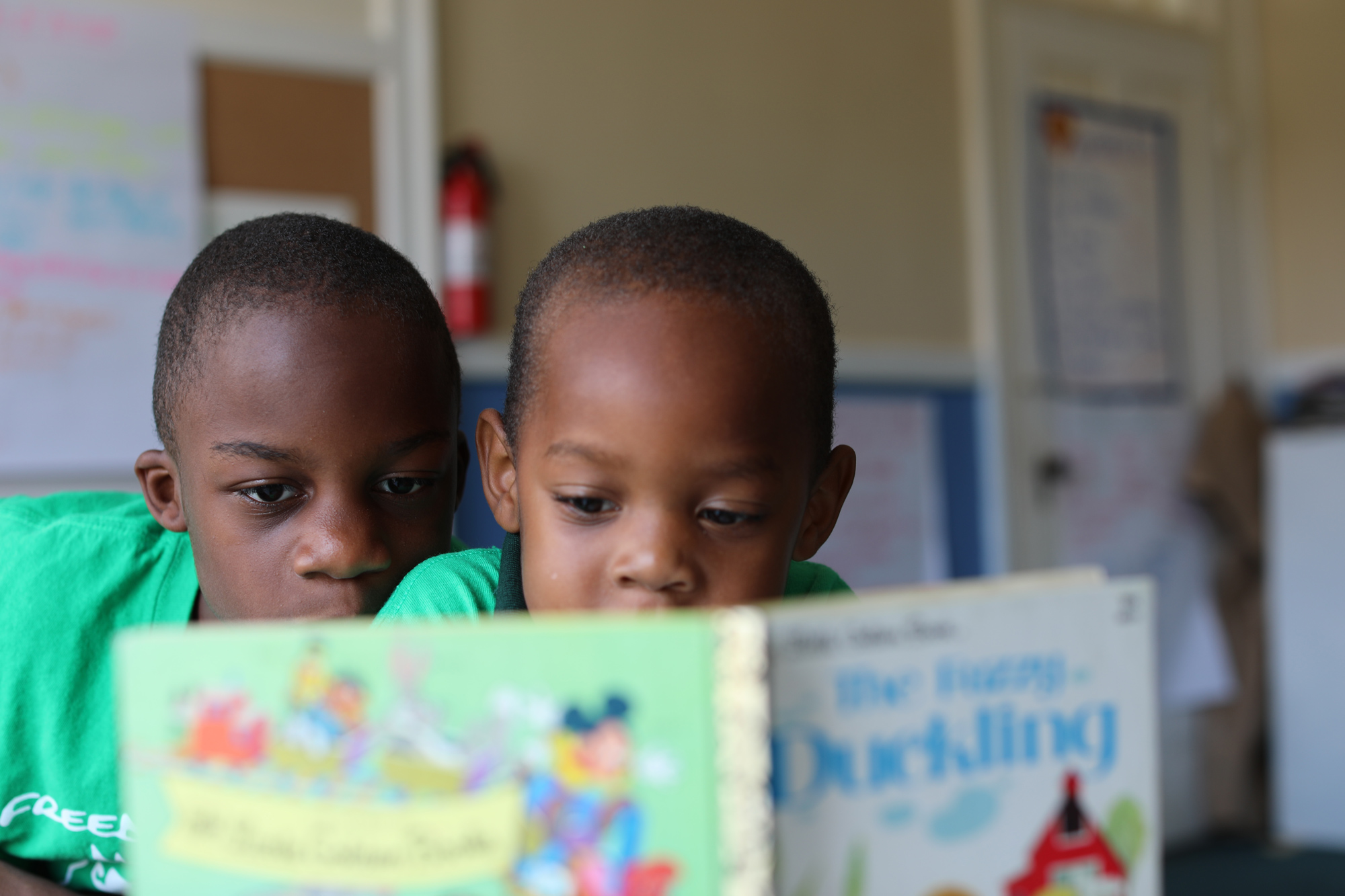A New Chapter

With a long history of serving children dating back to the 1800's, Appleton Episcopal Ministries started a new chapter this past summer. It welcomed 50 rising first to third graders to a six-week summer enrichment program for free.
But this wasn’t your typical summer camp. By opening a Children’s Defense Fund Freedom School,® Appleton became part of a national program designed to “build strong, literate, and empowered children who are prepared to make a difference in themselves, their families, communities, nation, and world.”
Children who attend might otherwise not have access to reading enrichment opportunities. The program is designed to curb summer learning loss and close the achievement gap that exists between many students who come from lower-income families and their more affluent peers.
With the Freedom School program, Appleton Episcopal Ministries is seeking to combat some of those disparities by investing in children from low-achieving schools. In doing so, Appleton carries on a proud legacy of supporting children and families who are marginalized.
“These are not those children — they are our children,” missioner for Appleton Episcopal Ministries Julie Groce explains.
66% of fourth graders in Georgia are not profficient in reading. — Annie E. Casey Foundation, 2015
I CAN MAKE IT || The children, who are referred to as scholars, start each morning by singing, “There is something inside so strong, I know that I can make it...” as part of Harambee, which means “to pull together” in Swahili. The communal gathering energizes scholars for a day of learning, friendship, and fun. Then the group breaks into classes to work on reading. Classes are intentionally capped at 10 scholars to ensure students get plenty of time and attention from teachers. Choosing to work with elementary school children on their reading skills before they enter third grade is intentional.
“It is the pivotal point where you shift from learning to read — to reading to learn,” Groce explains. “If you can’t read well by that time, it is very difficult to learn more advanced subjects like math, science, history, and literature.”
Freedom School’s curriculum is designed to foster a love of learning and encourage scholars to gain confidence in their abilities. By using books picked out by the Children’s Defense Fund, scholars can recognize themselves in characters, which is key to promoting self-esteem, Groce says.
Appleton Episcopal Ministries works to promote the health, safety, education, and well-being of children and families.
DRAWING THE CIRCLE WIDER || Macon’s Freedom School program was established thanks to the support of the Convocation of Middle Georgia and Convocation Dean, The Very Rev. David Probst. All 10 churches offered financial support and in-kind goods to make the program possible. St. Paul’s Episcopal Church provided the space — classrooms for the scholars as well as lodging for servant leaders who taught scholars.
During an average summer, students may lose up to two months’ worth of learning. This is known as the “summer slide,” and it accounts for more than half of the achievement gap between lower- and higher-income students.
The Rev. Bryan Hinson, priest-in-charge at St. Paul’s, says that hosting the scholars feels good. “I think it is getting us out of an island or an inward facing perspective and, as the Bishop and the diocese say, draws the circle wider.”
“I think it not only resurrected and refreshed and revitalized our space, but also some people’s hearts to serve. There’s no shortage of children to serve. I like the idea that the people of the parish are considering, ‘What else can we do? What other need is there, and what are we called to do?’ To me, that is a win. People are discerning. They are figuring it out, and they are in the game.”
Several parishioners have since become volunteers with Path to Shine, a different ministry that provides reading support and mentorship during the school year.
“I would encourage parishes and other convocations to look at ways to use education as an outreach tool for children,” Groce says. “Freedom School was one of the most rewarding things I’ve ever done. It was such a gift to us, to Appleton, and the entire Episcopal community.
While I think it was a wonderful service to the children, it was such a gift to us to be able to garner our resources to do that and to establish new relationships with children and families.”
The Macon Freedom School has been a testament to the power of collaboration among convocation, parishes, and the larger community of middle Georgia. Sponsors — more than 50 in all — included private donors; Episcopal churches; congregations of other faiths; faith-based organizations who donated supplies; community organizations such as Book ’Em, which gave 50 bookbags with five books each; and the St. Francis Arts Center, which hosted scholars for a two-week ceramic project; a local private school that lent its vans; and the Macon-Bibb School System, which helped with selecting schools to serve. They all pulled together.
To donate to Appleton Episcopal Ministries or learn about starting your own Freedom School program, contact Julie Groce at missioner@appletonepiscopal.org.


